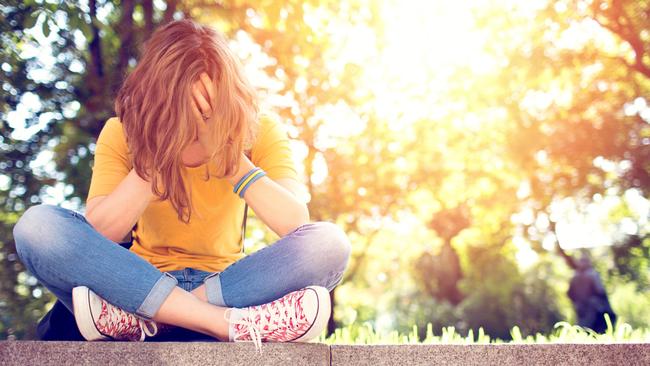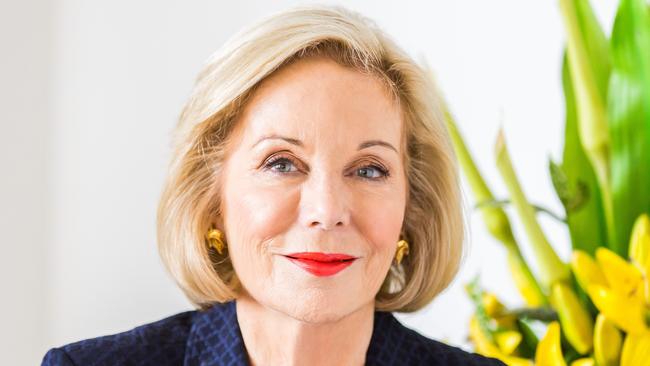Ita Buttrose: Coronavirus lockdown has put the spotlight on Australia’s mental health
Restrictions caused by the COVID-19 pandemic may have done what years of talking could not – removed much of the stigma associated with our mental health, writes Ita Buttrose.
Rendezview
Don't miss out on the headlines from Rendezview. Followed categories will be added to My News.
Coronavirus has tested the mental health of Australians in ways most people have never experienced.
Lives were turned upside down with little time to process the “new normal” before it enveloped us, like it or not.
But, paradoxically, the restrictions caused by the COVID-19 pandemic may have done what years of talking could not – removed some of the stigma associated with mental health.
One of the greatest health challenges the world has encountered, and continues to tackle, looks like leaving an unexpected legacy.
Mental health experts have long talked about the need to remove stigma that has resulted in many Australians not seeking help and treatment.
But now, thanks to Coronavirus, more people are talking openly about mental health because they have had an insight into how circumstances beyond our control, the sense of powerlessness over our destiny, can affect our moods, our outlook on life and our relationships.
The removal of the things that bring us joy or routine has, for some, led to depression and anxiety. These are feelings many have not experienced before and are ill-equipped to manage.

Mental health experts anticipate that the economic and social upheaval caused by the pandemic will result in significant increases in rates of the depression and anxiety, already common in our society, as well as escalation in the rates of suicide, post-traumatic stress disorder and domestic and family violence.
Mental illnesses are highly disabling. One in three Australians will have a mental illness in their lifetime. In any one year, one in five adults and one in seven children aged 4 to 17, will experience some form of mental illness.
“Young people’s mental health needs will require urgent attention. We’re going to see a lot of new episodes of mental health issues and mental illness in people who previously hadn’t experienced such illnesses, and people with existing problems are going to get worse in many cases,” says Professor Pat McGorry, Professor of Youth Mental Health at the University of Melbourne, and a member of The Australian Mental Health Prize Advisory Group.
Richard Bryant, Scientia Professor of Psychology at the UNSW Sydney and leader of the University’s and Westmead’s Traumatic Stress Clinic agrees. “Much of the anxiety right now is an appropriate response to stress but as we go into next year when we can probably start to say the worst is over, there will be people with a persistent mental health problem”.
Speaking at the launch of this year’s Australian Mental Health Prize, Professor Bryant called for a nationally co-ordinated approach to manage the expected increase in long-term mental health problems, both from trauma directly related to the COVID-19 outbreak, and the economic repercussions to follow.

Now in its fifth year The Australian Mental Health Prize was established by UNSW through its School of Psychiatry, and recognises Australians who have made outstanding contributions to the promotion of mental health or the prevention and treatment of mental illness.
Australia has an enviable track record in the delivery of innovative programs, services and promotional campaigns in relation to mental health but there is still much work to be done especially in our over-stretched public system. Health systems will need to adapt to the potentially large numbers of people requiring help and connect with people who traditionally do not seek mental health assistance.
With the spotlight well and truly on mental health, The Australian Government has responded with the announcement of Associate Professor Ruth Vine, as the country’s first Deputy Chief Medical Officer for Mental Health and a $48 million Mental Health and Wellbeing Pandemic Response Plan. An additional $20 million in funding will go to mental health and suicide prevention research. Mental health is now a Government priority.
As Chair of The Australian Mental Health Prize Advisory Group, I know our mental health sector is brimming with brilliant people who are doing some ground-breaking work. Their expertise is worthy of recognition. The general public, clinicians, health professionals and community groups are invited to nominate individuals they feel are making a real difference in the area of mental health research, advocacy or service delivery.
Nominations for the Australian Mental Health Prize close 30 August.
Originally published as Ita Buttrose: Coronavirus lockdown has put the spotlight on Australia’s mental health


